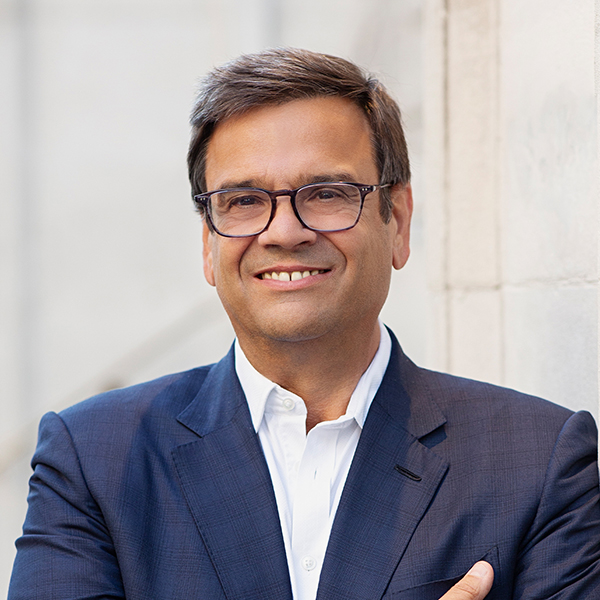Coller Capital opens the door to the secondaries market

- Founded in 1991, Coller Capital is the world's largest independent firm dedicated to private equity secondaries.
- Secondaries offer attractive returns with lower risk compared to traditional private equity investments.
- Jeremy Coller's philanthropy focuses on improving the global food system through the FAIRR network.
What is Coller Capital and why did you found it in the first place?

Coller Capital is the world’s largest independent firm dedicated solely to private equity secondaries. We’ve been in business since 1991, have almost 300 people in six offices across three continents, and in private equity circles we’re almost synonymous with the secondaries industry. That’s why we like to say we’re first in secondaries.
The firm actually got started almost by accident. I began my career in pensions, working at ICI, and like so many professional investors before me I decided I could probably do a better job of it on my own! So I got busy setting up a private equity fund of funds when Saddam Hussein invaded Kuwait and the international markets froze up in a panic. There was just no liquidity at all. Like many entrepreneurs before me, like many of the people reading this I'm sure, I had to pivot. I figured that if everyone needed liquidity, it was a great time to buy it - and so I set about institutionalising the secondaries market.
Back then, it was just a little cottage industry, worth a few million dollars annually. Today the market is well over a hundred billion dollars, it's on course to hit half a trillion by the end of the decade, and as the market has grown and evolved so too has Coller Capital. We raised the first-ever European secondaries fund. Then we raised the first-ever global secondaries fund. We’ve created the world’s largest secondary fund a number of times. In 2021 we closed our eighth flagship fund at more than $9 billion. We recently launched the world’s largest private credit secondaries fund, worth $1.5 billion. We currently have $30 billion of assets under management. Last year we launched our exciting new offering for ultra-high net worth individuals, opening up the huge opportunity of secondaries to private clients and family offices for the first time.
It’s already been quite a journey, and we’re not done yet.
It’s been said that private equity secondaries is the best asset class you’ve never heard of. What exactly is the market all about?
The big, defining difference between businesses owned by private equity and the countless millions of unquoted and family-owned companies out there, is that with private equity everyone agrees there is going to be an exit before you make an investment. It’s an important distinction because that difference is what allowed private equity to become a vehicle by which, for the very first time, institutional investors could put substantial capital into private companies. It was a real game-changer.
But what if you want to get out earlier, or change your portfolio mix? Maybe you want to re-invest or do co-investments. Whatever the reason, whatever the motivation, if you want to sell your holding you need someone to buy it off you. And that’s what secondaries is all about - buying and selling portfolios of companies held by other private equity funds or corporates.
The big advantage of that over traditional, primary buyout funds is that you can see how an investment is performing before you put your money in. It's like picking the winner of a race when the runners have already completed half the course – the portfolio has already been created, the transaction fees have all been paid. With assets in the ground, your underlying portfolio is more visible, and LPs are paying fees only on what's been invested.
You know what you’re getting into and you’re getting a great price. To put it simply: Why buy in year one when you can buy in year five at a discount?
The other big plus is that secondaries consistently deliver attractive returns with a lot less risk than other comparable investments – which all add up to consistent performance across market cycles.
But that success isn’t a function of the market – much of it is down to our singular focus. Since I started the firm more than 30 years ago, secondaries is all we’ve done. We’re not conflicted or distracted by anything else, and that really matters for our investors. After all, if you needed heart surgery would you rather put yourself in the hands of a general surgeon who does a little bit of everything, or the world’s most experienced cardiothoracic specialist who has spent decades honing their skills?
Tell us more about the private wealth offering and why family offices should be looking at secondaries.
I've always believed in democratising finance, giving more people access to more kinds of investments. In the past, it hasn't always been possible to open up secondaries more widely, but today we have the technology and the vehicles needed to create opportunities for private individuals that were previously reserved for institutions.
As for why, it's the same thing that makes secondaries so attractive to pension funds around the world: consistently high returns with consistently low risk. For private investors, your first priority is to maintain what you have and your next is to grow it. While we all know there are never any guarantees with any kind of investment, the risk/return profile of secondaries makes them particularly suitable for individuals with those goals in mind.
What lessons have you learned while building Coller Capital?
There’s hardly been a day in the past 30 years where I haven’t learned something new, about the industry, about business, or about people. There’s that old joke that an expert is someone who has made every mistake once – and having been in this space for so long it’s certainly interesting to see new entrants grappling with problems that we worked out how to deal with decades ago!
From a private equity point of view, there are a million different tips I could give people, but ultimately the most important thing is something I was taught way back when I was a student: you have to enjoy working in this industry. If you don’t really love it then you’ll never have the motivation and dedication needed to get ahead.
As for working in secondaries, I’ve got three key rules: alignment, alignment, alignment. It’s what this business is all about because if you’re going to succeed you have to be relentlessly focussed on the end investors. As the largest investor in our own funds, we don’t succeed, unless our investors succeed.
All through my career, I've talked about wanting to put a better breakfast on the tables of pensioners around the world. It's a powerful motivator and being properly aligned helps us achieve it – at Coller Capital, our ethos has been if we look after the millions of pensioners, our investors will look after Coller Capital, and Coller Capital will look after the team.
Delivering for pensioners is clearly important to you professionally, but does that motivate you personally outside of Coller Capital?
My obituary! I read it a few years ago when a friend wrote it for me, which helped me realise that being remembered as the “godfather of secondaries” would be great, but I also fortunately now have the means to leave the world a little better than I found it.
The investment industry is what I know best, and I appreciate how important it is to global industry, so I decided to use the power of capital markets to drive positive change. My charitable foundation is home to an organisation called FAIRR, which is the fastest-growing investor network representing $70 trillion in assets under management (AUM) focused on the global food system. FAIRR fills the knowledge gap for investors using research, data, tools and engagements to quantify the very real material risks related to intensive animal agriculture – risks related to the impact it has on our climate, our planet's resources and our own health, not to mention the effect it has on our fellow animals. In private equity, you succeed by spotting the company where the right intervention can deliver a return, and I see FAIRR's work along similar lines: rather than shouting from the sidelines we talk to investors in a language they understand. It's all about materiality, not morality.
Does your interest in ESG also cross over to Coller Capital’s ESG policies?
FAIRR and my other philanthropic projects are entirely separate from Coller Capital, but the ESG policies at Coller Capital are very much central to the way we do business and are one of the ways we deliver maximum value for our investors.
At Coller Capital, ESG isn't just a nice to have, or a branding exercise. It's a vital set of lenses for looking at how we work and who we work with and for analysing opportunities and risks in possible investments.
A great illustration of that involves our investment in a US biomedical company whose production process required them to take blood samples from sheep. They had a whole flock of animals and they used to destroy them after two or three years when they reached the end of their useful lives. But we looked into it and found that sheep can actually live to be 11, 12, or 13 years old if you leave them to it. Instead of killing them off we put them to work: once they can no longer help the core medical business, they roam around the grounds trimming the grass, so it doesn’t grow over the solar panels that power the lab.
It’s a simple little story but it shows how ESG can be a material consideration as well as a moral one – we recently sold our stake in the company for considerably more than we paid for it.
Our commitment to ESG also shows how Coller Capital’s values aren’t just words on a page: if a partner or supplier can't or won't meet our standards then we're not afraid to walk away.
You mentioned how your education helped you build Coller Capital; has it also influenced your philanthropy?
Absolutely. Every cent that Coller Capital makes, every dollar we deliver for pensioners worldwide is a testament to the power of education, because I simply would not be here without it. I’m living proof of what the right teachers can do with the most unpromising raw material and I want as many others as possible to benefit from a greater understanding of private capital. That’s why I’m a long-term supporter of Tel Aviv University, where I put my name to the Coller School of Management, consistently ranked among the top business schools in the world.
As the de facto head of a family office yourself, how do you look at investing your own money for the future?
I’m a huge believer in alignment – show me an incentive and I’ll show you an outcome – which is why Coller Capital’s partners, myself included, are the largest investors in our own funds. On a personal level, I’m very interested in investing in solutions to the problems the world faces. For example, we can’t fix climate change without fixing the way we feed the world, so I’m one of the biggest investors in alternative proteins, supporting an exciting new industry that has real potential if it can overcome the hurdles that have been erected by traditional meat and dairy companies.







